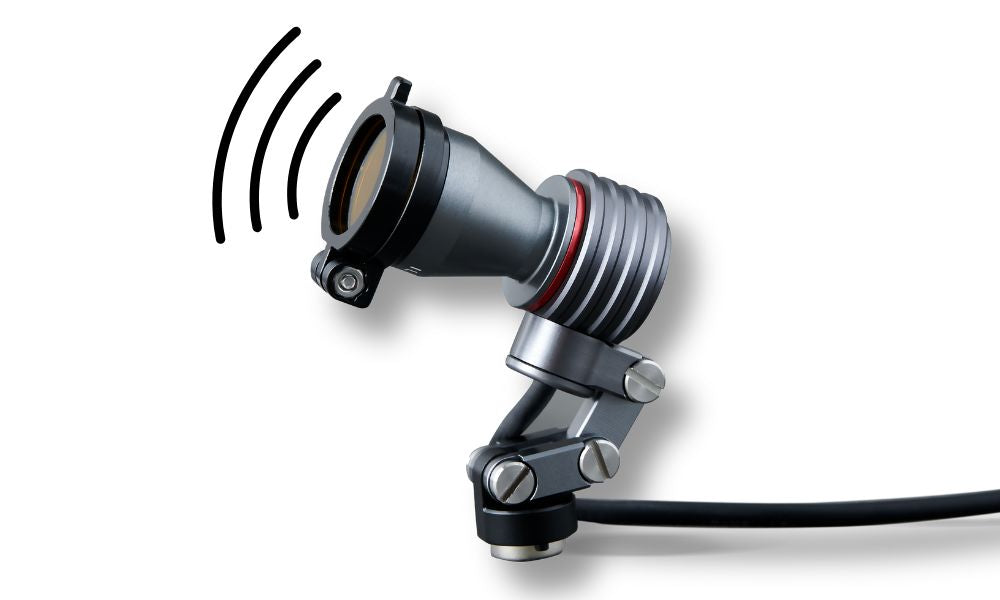Selecting the right magnification for your loupes is key to enhancing both precision and comfort in your practice. Magnification essentially means how much larger objects appear through the lenses compared to the naked eye. For example, with 2.5x magnification, an object will look two and a half times bigger. But while this is the starting point, there’s more to consider when choosing the right loupes for your needs.
Several factors influence how effectively magnification will work for you: your working distance, the placement of the lenses relative to your eyes, and the quality of the lenses and frame design.
Working Distance: A Critical Consideration
Your working distance—the space between the loupe and the object—has a big impact on how much magnification you’ll need. If you're working farther away from the object, you'll need a higher magnification to see the same level of detail as if you were working up close. For example, a 2.5x magnification at a 15-inch working distance is equivalent to seeing an object 6 inches away without magnification. But if you increase that working distance and want the same clarity, you may need 4.5x or even 6.5x magnification.
The key is to balance magnification with a comfortable working distance that keeps you in a proper ergonomic position. Overstraining your neck and back by leaning in to see finer details can lead to long-term discomfort, so having the right magnification at your natural working distance is crucial.
Ocular Distance and Field of View
Another important factor is the distance between your eyes and the ocular lenses, which directly impacts your field of view. The closer your eyes are to the lenses, the wider the view you’ll get. This is one reason why many loupes are built using Through-The-Lens (TTL) technology—allowing the lenses to sit closer to your eyes and maximize the field of view.
Additionally, TTL designs paired with frame features like pantoscopic tilt help ensure better ergonomics. By angling the lenses correctly, pantoscopic tilt not only improves your line of sight but also helps reduce neck and shoulder strain by enabling a more natural head position.
Why Build Quality Matters
Not all loupes are created equal, and the materials used in their construction play a significant role in their overall performance. High-quality loupes, like those from ILLUCO, use BBAR (Broadband Anti-Reflection) coatings, which are designed to provide optimal clarity and light transmission. This ensures that you can work for extended periods without eye fatigue.
Loupes with superior craftsmanship also offer a broader field of view and greater depth of field. These features are essential for allowing you to shift focus easily and maintain a clear image across various focal planes. For professionals who work in detail-oriented fields like dentistry or surgery, having this level of clarity and flexibility makes all the difference.
The Magnification Trade-Off
It’s important to note that as magnification increases, both the field of view and depth of field will decrease. At higher magnifications, you’ll see a smaller portion of the object in focus, which may require more frequent adjustments. However, the ability to move your head and refocus compensates for this limitation, ensuring that you can still maintain clarity and precision, even at higher magnifications.
Matching Magnification to Your Needs
Ultimately, choosing the right magnification is about finding a balance that suits your unique practice. Whether you’re a dentist, veterinarian, or surgeon, selecting the right magnification ensures that you can work comfortably and see all the details you need to perform your tasks with accuracy.
With ILLUCO’s range of magnification options and ergonomic designs, you can find loupes that provide both visual clarity and long-lasting comfort—helping you perform better while reducing physical strain over time.





Leave a comment
All comments are moderated before being published.
This site is protected by hCaptcha and the hCaptcha Privacy Policy and Terms of Service apply.